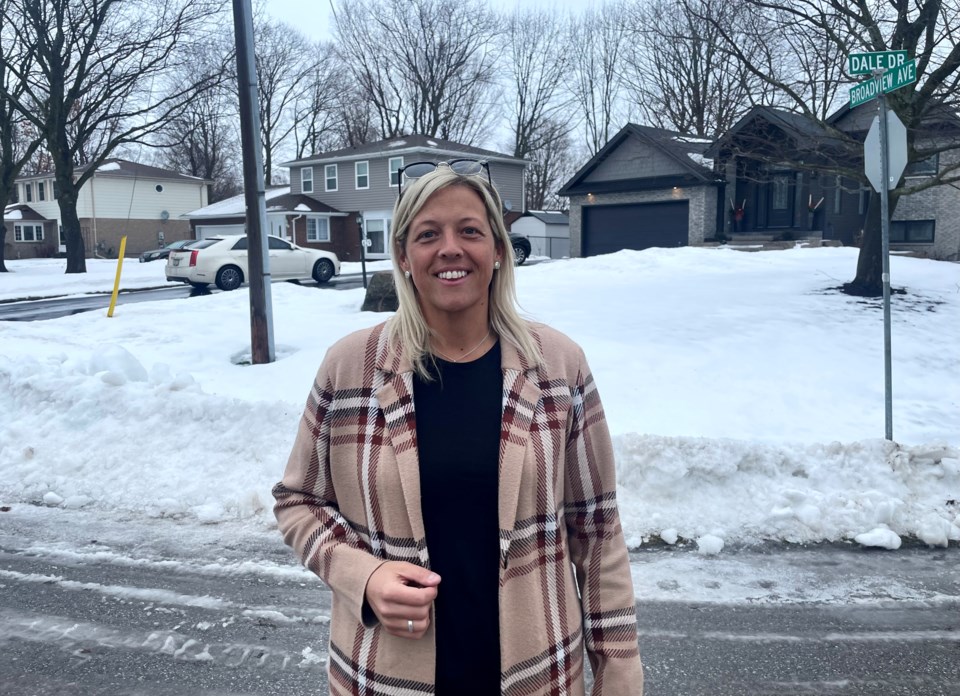AirBnb and other short-term accommodations (STA) will soon be regulated in Orillia.
At Monday’s council meeting, city politicians approved implementing an STA licensing program, among other regulations, following the lead of numerous municipalities in Ontario that have sought ways to crack down on problematic STAs in their neighbourhoods.
Though council still needs to pass a bylaw enacting the regiment at a later meeting, some of the suggested regulations are as follows:
- Requiring STA owners to acquire a business licence, at $2,000 per year;
- Implementing a demerit point system for non-compliance with regulations, which will suspend licenses at seven demerit points and revoke them at 15;
- Prohibiting STAs from operating within 100 metres of one another;
- Requiring a “responsible person” to be available 24/7 to address issues and complaints regarding STAs;
- Prohibiting more than two guests in a bedroom, or more than ten in any STA, between 10 p.m. and 7 a.m.; and
- Formally defining an STA as a building, or part of a building, rented for less than 28 consecutive days throughout the year
The move to regulate STAs in Orillia was spearheaded by Coun. Whitney Smith, who previously requested – with council’s support – that city staff prepare a report outlining the feasibility and options for regulating such accommodations.
In its subsequent report to council, city staff stated there were 115 STAs in Orillia as of January 2023, accounting for roughly 1 per cent of the properties in the city.
Should each STA pursue a license, $230,000 in potential annual revenue could be generated for the city.
The city consulted numerous municipalities, ranging in population from 12,000 to 50,000, to learn what regulations they had applied to STAs, with the report noting that most municipalities enacted regulations in response to “significant” issues relating to STAs.
Between 2017 and 2019, however, the city received only eight complaints about STAs, and five complaints over the course of 2022.
Most city councillors spoke in favour of enacting STA regulations at Monday's meeting.
“In the experience that I've had with some of these issues, just through canvassing, but also talking with residents, is that it's an issue that's emerging,” said Coun. Jay Fallis. “We don't have it as prevalent as Collingwood or some of these other bigger cities, but it's definitely becoming something that's impacting us, and I think the more proactive we can be the better.”
Coun. David Campbell said that although the current statistics do not justify imposing regulations, he believes – after discussions with residents – a large number of STA issues go unreported.
“I think a lot of it simply goes unreported, and I think there are a lot of issues that people, you know, maybe complained a few times and then threw their arms in the air and gave up,” he said. “We need to have a level playing field; we need to treat all rental accommodations the same way, and I think that this will help to achieve that.”
Mayor Don McIsaac agreed.
“The OPP do not track complaints by Airbnb: if they have a noise complaint, it’s a noise complaint but it's not an Airbnb noise complaint,” he said. “Also, a lot of residents have said that they complained to the OPP but not to bylaw because it's at night, and the issue is solved by the morning so they don't notify bylaw.”
Smith said she brought the matter to council because of concerns she heard during the election campaign.
“There was hundreds of complaints that came through when we were door knocking,” said Smith.
In other municipalities, STA operators have challenged regulations through the Ontario Superior Court of Justice and the Ontario Land Tribunal, and Coun. Tim Lauer – who noted his support of regulating STAs – wondered about the implications of these cases.
“I've consulted with several municipalities … and, at the end of the day, most of what I found was that these things have been settled in the court. I'm not aware of any outstanding legal battle that we're sort of waiting (for) a decision on before we could sort of carry on with this,” said Shawn Crawford, the city's manager of legislative services.
“I feel pretty comfortable that council can do this. We’ve just got to make sure that, when the bylaw’s crafted, that it is fully defensible in court, recognizing decisions that have already come down the pipe.”
With safety concerns in mind, Coun. Ralph Cipolla questioned whether the city could ban fires and the use of fireworks on STA properties.
Crawford responded that council could direct the city to do so, but he advised against it.
“Any property that has a short-term rental, or any other property in the city, provided they meet the requirements in the open air burning bylaw, they would be fine to burn, right?” Crawford responded.
“If they rented it out to someone and they went ahead and, you know, burned all night, threw tires in the fire (and) that sort of thing, they'd be in violation of our open burning bylaw,” he continued. “They would be docked demerit points for not complying with applicable rules, and then once you (lose) so many disparate demerit points your licence could either be suspended or revoked.”
